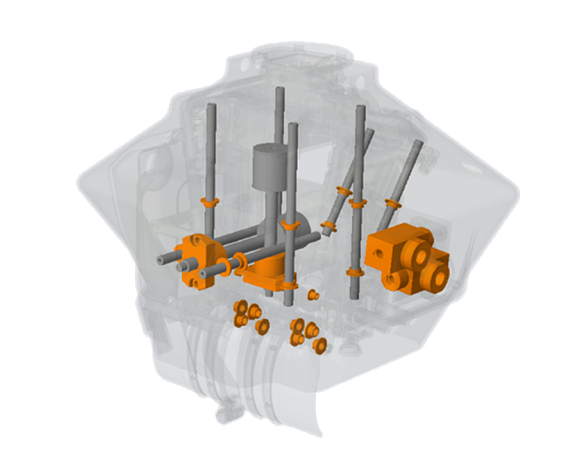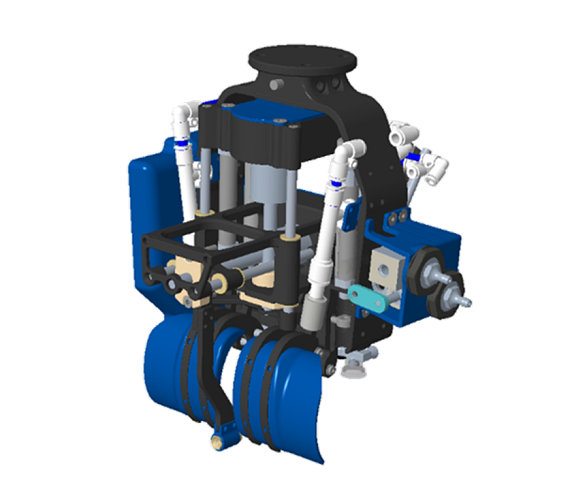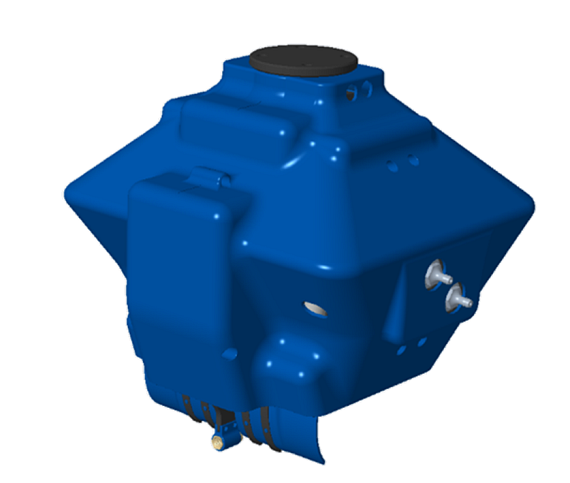Technical data:
- What was needed: A delta robot capable of picking up fish and provide them with vaccine
- Requirements: 100% lubrication-free and maintenance-free, corrosion-free, resistant to fresh water, salt water and cleaning chemicals, robustness, abrasion-resistant
- Products used: dryspin® lead screw and lead screw nut, drylin® anodised shaft, iglidur® flanged bearing
- Success for the customer: Since the robot is used outdoors on fish farms in Norway, Scotland and Iceland, all components must be resistant to fresh water, salt water and cleaning chemicals. The company therefore uses robust, lubrication-free igus® polymer bearings, anodised shafts, and lead screw systems. The design engineers also manufactured a vaccine injector from a CNC block of high-performance polymer. It is resistant to abrasion and to the oil-based vaccines.
Do you need more information? Contact us here

Problem
The task was to develop a fully autonomous tool for seeding and sorting fish (pick and place) to be coupled with a delta robot. The goal was to develop a lightweight and rigid tool capable of withstanding high torques while holding a fish securely in place. The tool had to be able to successfully remove a fish from a moving conveyor belt. It should process the fish, deliver vaccinations, and place it back on the conveyor belt in a new orientation.The tool had to meet other strict guidelines such as corrosion resistance, long service life and low maintenance. The machine is to be transported from one location to another and must therefore be robust to withstand transport. Since the tool was to be used on an outdoor fish farm (Norway, Scotland, Iceland), the selection of plastics resistant to fresh water, salt water and cleaning chemicals was of utmost importance.
Solution
The products from igus® played an important role in the development and revision of existing components and enabled a lighter, more compact and more reliable design. The use of low-friction flange bearings in sliding and rotating parts of the design not only reduced the weight and size of the part, but also increased the life expectancy of the system. The prefabricated igus® solution provided assurance that it would work and fit in with the rest of the system, reducing installation time and allowing them to focus on more time-consuming areas such as fish measurement data. The calculations provided by igus® proved that the components would withstand the planned loads and ensure a long service life and long maintenance intervals. The use of a complete igus® system with igus® in-house machining of lead screws and rails enables an uncomplicated setup on arrival.Thanks to the wide range of igus® products and the possibility of customisation, designs could be selected that were desirable for the application without abandoning the original design intent.
Further application pictures:


Do you have questions about drylin® lead screw technology?
Our expert, Thorben Hendricks, will answer all your questions about dryspin lead screw technology. Just fill out the contact form, and we will address your concerns. We are looking forward to your message!► Request contact online
► Make an appointment
► Expert support upon request by phone or with the video chat function
► Order a free sample
Request expert support here



